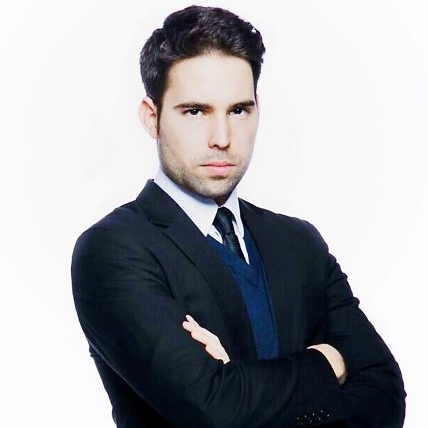
News

Bringing Israeli cyber security expertise to South Africa
JORDAN MOSHE
“Privacy is important, especially in this technology-driven world,” explains Eyal Balicer, an expert in technology-oriented policy and business development. “Even what seems just negligible information could create a unique prism into someone’s life, habits and environment.”
Balicer is visiting South Africa at the invitation of the Israeli Trade and Economic Office in Johannesburg. He has come to leverage his expertise in cyber security and share it with business counterparts in South Africa. Balicer is helping them find ways to improve their online safeguards and show them how they can tap into Israeli innovation.
Balicer earned a BA, MA and pre-doctoral degree in political science by the age of 22. He then went on to serve in the Israel Defence Forces (IDF) for five-and-a-half years before going on to become the youngest officer to join the office of the Israeli prime minister.
It was here that he established the Research Unit of the Israel National Cyber Bureau, where he led a cross-government process to shape Israel’s international cyber security strategy and policy. Two years later, he joined the private sector, and today he heads Glilot Capital Partners, the best-performing venture capital fund in the world.
The company manages $125 million (R1.5 trillion) in investment, and Balicer takes his job seriously. “From cyber to finance, health to automotive, we find and invest in innovative Israeli entrepreneurs who offer unique solutions to major corporations in the tech industry,” Balicer says.
Explaining why he believes Israel has come to lead in the technological innovation sphere in such a short time, Balicer says: “Israel has a particular culture in its DNA. We look to undermine accepted convention and find new solutions to problems, which may not have been considered before.
“While different explanations for our prowess in innovation have been suggested – some trace it back to the culture of Talmudic study or attribute it to our philosophies of dialectics and the study of diverse subjects – modern Israel possesses a unique eco-system.”
This ecosystem sees various components of Israeli society working together to achieve something remarkable, says Balicer. “Government, industry, local and international stakeholders, the academy, the IDF and the various establishments work together in creating the perfect environment for innovation, which is constant.”
Balicer explains: “The IDF, for example, serves as an organic screening process that promotes the Israeli cyber ecosystem as a whole. When you have the mandatory draft of every 18-year-old in Israel, you can choose the best and the brightest youth, and train them with cutting-edge technologies. You can then delegate enormous responsibilities to them and give them the opportunity to encounter challenges they would never encounter elsewhere.”
Israel may be the ideal environment for this, but it is also forced to engage in innovative development owing to its circumstances.
“Proportionally, it’s a small country,” says Balicer. “Therefore, reliance on its own innovation is a necessity, especially because of its security concerns.
“Together, the culture which celebrates innovation and the fact that its people are security minded creates fertile ground for technological exceptionalism.
Speaking about the current state of cyber technology, Balicer addressed the recent scandal regarding the acquisition of user data by Cambridge Analytica from Facebook, and the social media culture in general. “The nature of the scandal may have been a violation of terms of use, but this is a breach of privacy more than security. It reminds us that consumers prefer usability over security and need to be aware of what data is being shared and who has access to it.
“Consumers are getting a service without cost and should consider that perhaps they are the product in many ways.
“Online security is not a guarantee,” he warns. “We should consider ourselves as not safe at all. All consumers need to take steps to safeguard themselves online. They need to implement necessary controls to maintain a healthy usage of virtual space.
“If users are vigilant when conducting transactions online and understand that they are using an open public space, they can protect themselves. The reality is that consumers are not informed enough. Service providers know this, yet they are not producing products that prioritise security.”
Balicer believes that we will continue to see a rapid development in cyber technology.
“The cyber arms race between attackers and defenders will continue escalating. Defenders will always need to up their game and stay one step ahead of attackers by protecting themselves. Attackers need only one opportunity to breach a system and that’s it.
“The potential for attack is always on the rise, putting infrastructure and personal autonomy at risk.
“We need to continue teaching consumers how to approach the virtual space and help them find the ideal security solution they need.”




